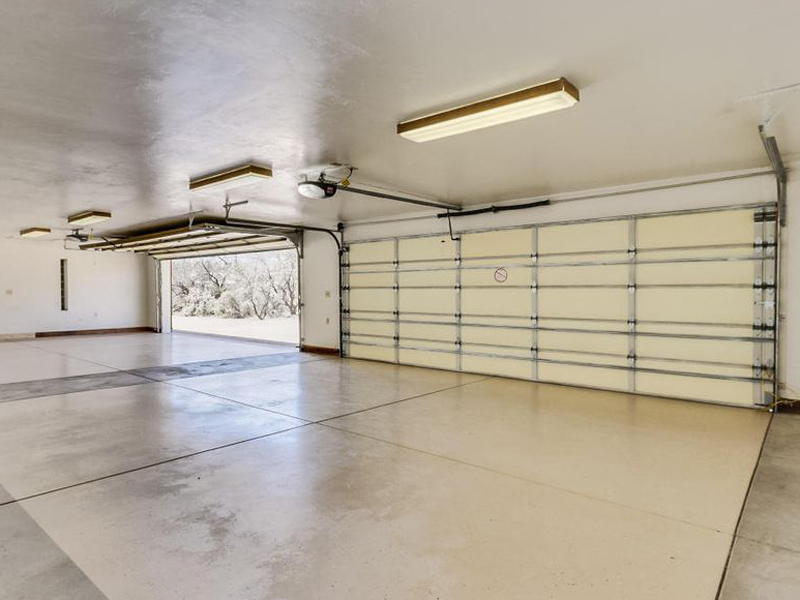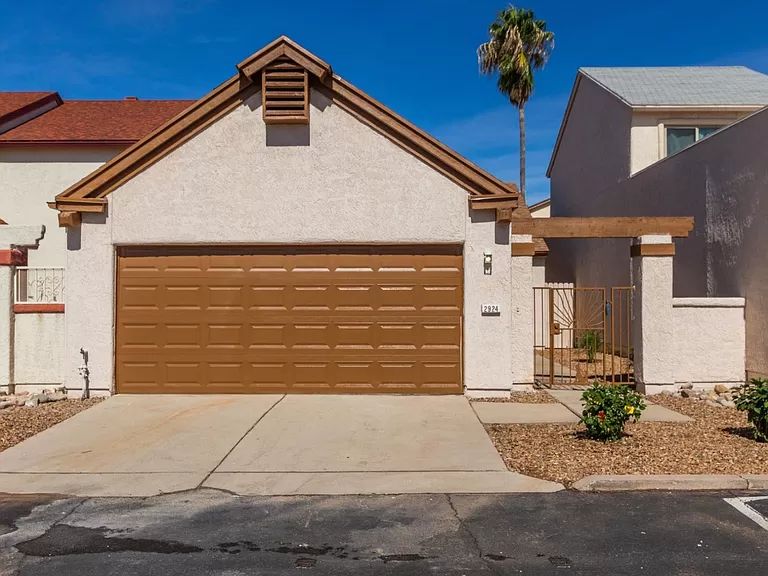Is Your Garage Door Stuck? Here's What to Do First
When your garage door will not open, begin with these crucial security checks prior to attempting any type of repair work. First, make sure no person is standing near the door and that lorries are free from the opening. Search for obvious indicators of damages like damaged panels, bent tracks, or hanging cords. If you see a snapped spring or seriously damaged elements, stop instantly and call an expert—-- these repair services need specific tools and expertise to deal with securely.

Examine These 6 Points Before Calling a Specialist
Before assuming you require expensive fixings, go through this fast analysis checklist that fixes most garage door issues:
-
Power source: Validate the opener is plugged in and the outlet is functioning
-
Remote batteries: Change dead batteries in your remote control
-
Hands-on lock: Inspect if someone mistakenly engaged the hand-operated lock
-
Blockages: Seek debris obstructing the door's course or sensors
-
Emergency situation release: Make sure the red emergency cable hasn't been drawn
-
Circuit breaker: Confirm the garage circuit hasn't tripped
These basic checks resolve around 70% of garage door problems without calling for professional intervention.
10 Common Reasons Your Garage Door Will Not Open
Understanding why your garage door opener isn't working helps you select the appropriate solution. Right here are the most regular reasons house owners experience:
Dead remote batteries represent the simplest solution—-- when batteries die, the remote can not send out signals to the opener. Power interruptions or stumbled breakers reduced electrical power to the electric motor. Broken springtimes protect against the door from lifting effectively and call for prompt specialist focus. Sensor imbalance reasons safety and security systems to block door operation. Track obstructions quit rollers from moving smoothly. Electric motor overload triggers automated shutoffs when the opener identifies resistance. Limitation switch troubles perplex the opener regarding door placement. Wire damages interferes with the training mechanism. Weather-related concerns affect door motion during extreme temperatures. Component wear from age gradually minimizes system performance.
Trouble # 1: Dead Remote Batteries
When your wall switch works however your remote doesn't, dead batteries are generally the culprit. A lot of garage door remotes use either 3-volt lithium or 12-volt alkaline batteries. Eliminate the back cover of your remote and inspect the battery kind. Change with fresh batteries and test the remote. If it still doesn't function, you may need to reprogram it to your opener. Consult your opener's handbook for details reprogramming guidelines, as the process differs by manufacturer.
Issue # 2: Power Supply Issues
Garage door power problems typically originate from loose links or tripped circuits. Examine that the opener is securely linked into its outlet—-- resonance can loosen links gradually. Evaluate the electrical outlet with one more gadget to validate it's functioning. Examine your home's breaker box for stumbled circuits, specifically if you have actually experienced tornados or power fluctuations. GFCI outlets may have tripped and need resetting. If the opener has power yet will not react, the problem likely lies in other places in the system.
Trouble # 3: Broken or Damaged Springs
Busted garage door springs are among one of the most hazardous elements to manage. If you hear a loud bang from your garage or notice the door feels very hefty when attempting to lift by hand, a spring has actually likely snapped. Torsion springtimes run horizontally over the door, while expansion springtimes remain on either side. Never try spring fixings on your own—-- these components save tremendous tension that can trigger serious injury or fatality. Specialist substitute commonly sets you back $150-$300 but ensures your safety.
Trouble # 4: Blocked Safety And Security Sensors
Modern garage doors include safety and security sensing units that protect against closure when things are spotted. These sensing units can quit the door from opening up if they're unclean, misaligned, or blocked by particles. Tidy sensor lenses with a soft cloth and make sure nothing obstructs the invisible light beam between them. Inspect that sensing units are properly straightened—-- the majority of have indicator lights that reveal connection standing. Sensor problems often resolve with straightforward cleansing and modification.
Issue # 5: Track Obstructions or Damage
Garage door tracks guide rollers as the door goes up and down. Dust, particles, old oil, or little objects can jam the system. Inspect tracks visually and get rid of any blockages with a brush or fabric. Try to find dents, flexes, or bending that could hamper smooth procedure. Small track changes are feasible for useful property owners, however substantial damages needs specialist fixing to stop additional issues or safety dangers.
Trouble # 6: Garage Door Opener Motor Issues
When the garage door electric motor runs but the door doesn't move, numerous issues could be liable. The motor may be overwhelmed and turning off as a precaution. Gear wear, particularly in older devices, can prevent appropriate procedure. Chain or belt drive issues influence power transmission. If you listen to unusual grinding, clicking, or humming noises, stop utilizing the opener instantly. Electric motor repairs typically cost greater than substitute, particularly for devices over ten years old.
Step-by-Step DIY Troubleshooting Overview
Follow this systematic strategy to garage door troubleshooting while prioritizing safety throughout the procedure:
Step 1: Check the wall surface button first. If it works yet the remote does not, concentrate on remote problems. If neither works, examine power supply.
Step 2: Take a look at the manual launch cable. If it's been drawn, the opener is disengaged from the door. Press the cart back to reconnect.
Step 3: By hand check the door by disengaging the opener and trying to lift the door by hand. It should relocate smoothly and stay in location when half-open.
Step 4: Examine noticeable elements for damage, paying special interest to springs, cables, and tracks.
Step 5: Inspect all safety and security attributes consisting of sensing units, limit buttons, and auto-reverse features.
Step 6: Test various controls (remote, wall switch, keypad) to separate the trouble source.
Always put on shatterproof glass and work gloves when carrying out evaluations, and never effort repair services on springtimes or high-tension components.
When to Call a Professional vs. do it yourself Solutions

Understanding when to call a garage door specialist versus attempting DIY repairs shields both your security and your pocketbook. Take care of these issues on your own: dead remote batteries, power supply issues, small track cleansing, sensing unit cleansing and positioning, and basic lubrication.
Never ever attempt these fixings on your own: springtime replacement or change, cable fixings, major track adjustment, electrical wiring problems, opener motor substitute, or any repair including high-tension elements. Specialist technicians have specialized tools, training, and insurance policy to handle harmful repairs securely.
Take into consideration fixing costs versus substitute expenses, particularly for doors over 15 years of ages. Modern garage doors supply far better safety and security attributes, power performance, and integrity than older versions.
Emergency Garage Door Solutions
When you're stuck with a garage door that will not open and require instant gain access to, follow these emergency treatments:
Handbook Operation: Draw the red emergency release cable to disengage the opener. This permits manual procedure yet requires correct method to prevent injury. Lift the door gradually and uniformly, making use of leg muscle mass rather than your back. A lot of household doors consider 100-150 extra pounds, making them manageable for a lot of grownups.
Temporary Solutions: If the door opens manually yet won't keep up, prop it open with sawhorses or clamps—-- never utilize your body or vehicles as assistances. For doors that will not shut completely, ensure the opening is secured if you need to leave.
Emergency Solution: Numerous garage door companies supply 24/7 emergency service for scenarios including protection issues, trapped automobiles, or complete system failings. While extra pricey than regular solution calls, emergency situation repair services offer instant options when needed most.
Safety Caution: What NOT to Do
Garage door security requires recognizing dangerous fixings that must never be attempted by homeowners:
Never ever attempt to fix springtimes—-- they store enough energy to cause deadly injuries when they snap or are incorrectly handled. Don't compel a stuck door—-- this can harm the opener, tracks, or door panels, developing much more costly problems. Stay clear of bypassing safety functions—-- sensing units and auto-reverse systems stop significant injuries and residential property damage.
Don't ignore unusual sounds—-- grinding, scraping, or banging audios suggest issues that worsen with time. Never ever make use of the door if cables are frayed or damaged—-- the door can fall all of a sudden. Do not try electric fixings unless you're a certified electrical contractor—-- garage door openers use both 120V household present and low-voltage control circuits.

Preventive Upkeep to Avoid Future Problems
Routine garage door upkeep avoids most typical problems and prolongs system life expectancy substantially:
Regular monthly Jobs: Visual evaluation of all parts, testing auto-reverse safety attributes, inspecting and tightening hardware, and cleansing tracks and sensing units.
Quarterly Jobs: Lubing all relocating parts with ideal garage door lubricating substance, testing guidebook procedure, and examining climate sealing.
Yearly Jobs: Specialist examination and tune-up, springtime adjustment if needed, and opener maintenance consisting of belt or chain modification.
Seasonal Jobs: Planning for climate extremes, inspecting insulation, and adjusting opener setups for temperature level adjustments.
Consistent maintenance expenses far less than emergency situation fixings and makes sure trusted operation year-round.
Garage Door Will Not Open Frequently Asked Questions
Why won't my garage door open with the remote however deals with the wall surface switch?
This usually indicates dead remote batteries, signal interference, or the demand to reprogram the remote. Check batteries first, after that consult your opener handbook for reprogramming instructions.
Can I by hand open my garage door if the power is out?
Yes, draw the red emergency situation launch cord to disengage the opener, after website that raise the door by hand. Be gotten ready for the door's full weight and lift with proper strategy to avoid injury.
Just how do I recognize if my garage door springtime is damaged?
Indicators include a loud bang from the garage, the door sensation incredibly heavy when raising manually, noticeable voids in the spring coils, or the door just opening a couple of inches before quiting.
Is it safe to use my garage door if it won't open up completely?
No, partial procedure indicates mechanical troubles that can get worse instantly. Stop using the door and have it inspected by a professional to stop additional damages or injury.
What should I do if my garage door opens however will not shut?
Check safety sensing units for obstructions or imbalance, check out the tracks for debris, and examine the auto-reverse feature. If these do not fix the problem, seek advice from an expert.
How much does it set you back to repair a garage door that won't open up?
Costs vary extensively relying on the issue: battery substitute ($5-$10), specialist medical diagnosis ($50-$100), springtime substitute ($150-$300), or opener substitute ($200-$500).
Can weather affect my garage door's capacity to open?
Yes, extreme cold can thicken lubes and influence steel elements, while heat can create expansion concerns. Most problems settle as temperatures stabilize, but consistent problems may require specialist focus.
Why does my garage door open up a couple of inches after that quit?
This generally shows broken springs, limit switch troubles, or track blockages. The opener's security attributes quit procedure when resistance is spotted, stopping damage to the motor or door.
Get Professional Assist for Complicated Issues
When do it yourself troubleshooting doesn't solve your garage door troubles, specialist service technicians give the experience and tools required for secure, enduring repair work. Qualified specialists detect concerns accurately, utilize manufacturer-approved components, and give guarantees on their job.
Specialist solutions consist of: thorough system assessments, springtime and cord replacement, opener repair service and replacement, track placement and replacement, electrical troubleshooting, and emergency situation service calls.
What to expect: ahead of time prices, qualified and insured specialists, same-day solution for lots of repair services, and follow-up maintenance suggestions.
Many garage door companies supply cost-free estimates for major repair work and can give immediate options for immediate problems affecting home safety or lorry access.
Obtaining Your Garage Door Working Again
A garage door that will not open up doesn't need to destroy your day or damage your spending plan. Start with basic troubleshooting steps like examining power, changing batteries, and examining for obvious blockages. Lots of problems have quick do it yourself remedies that recover typical procedure within minutes.
However, identify when professional aid is needed—-- specifically for spring-related issues, electric problems, or complicated mechanical failures. Trying hazardous repair work yourself takes the chance of serious injury and commonly creates much more costly troubles.
Regular upkeep avoids most garage door concerns and makes sure reputable procedure for years to find. When problems do happen, address them without delay to avoid more expensive repair services and keep your home's safety and comfort. Whether you need a basic battery substitute or full system overhaul, remedies exist to get your garage door functioning smoothly once again.